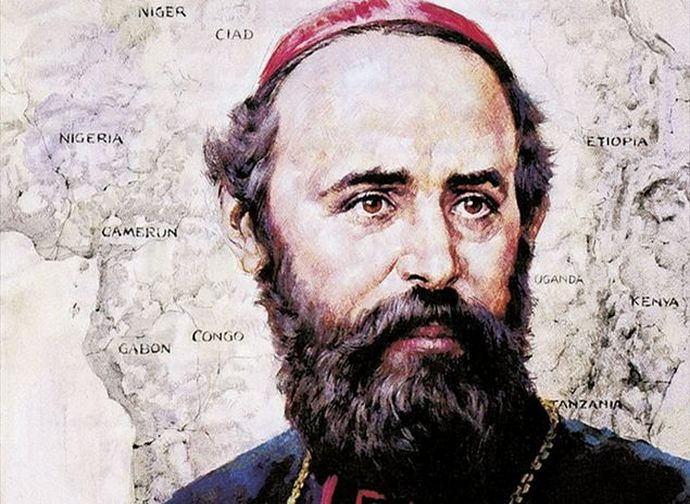Saint Daniel Comboni
He was trained at the school of Don Nicola Mazza, who had passed on to him his love for the Black Continent together with the idea of “saving Africa with Africa”, the true heart of his project

“Either Nigritia or death”, either Africa or death, was the motto of Saint Daniel Comboni (1831-1881). He was born near Brescia to poor parents who worked as farmhands, and trained at the school of Don Nicola Mazza in Verona, who had passed on to him his love for the Black Continent together with the idea of “saving Africa with Africa”, the true heart of his project. In fact, the saint had an enormous faith in the human abilities of Africans, contrary to the opinion about Africa in vogue today, which favours the departure of its young people and is based on the logic of mere welfarism. Precisely with a view to bringing out those abilities, the saint worked for the foundation of schools in which to train priests, nuns, doctors and teachers.
Fourth of eight children, most of whom died at an early age, Daniel had been educated in the Christian faith by his family. He had discovered his priestly and missionary vocation during his years in Verona with Don Mazza. In 1857 he undertook his first journey to Africa with four other priests (linked to Don Mazza), two of whom died shortly afterwards. He too, two years later, was forced to return to Italy for the first time due to continuous malarial fevers. He wrote to his parents: “We will have to toil, sweat, die, but the thought that we sweat and die for love of Jesus Christ and the health of the most abandoned souls in the world is too sweet to make us give up the great undertaking”.
Between his missions in Africa he travelled around Europe in search of funding to support his projects (including the one known as the “Regeneration Plan for Africa”) and to energize the missionary spirit. In 1867 he founded an institute for male religious, the Comboni Missionaries of the Heart of Jesus and in 1872 its equivalent female branch, the Comboni Missionary Sisters Pious Mothers of Nigritia, today known as Comboni Missionaries and Comboni Missionary Sisters respectively. Aware of the importance of missionary communication, he also founded a magazine. At the First Vatican Council he even convinced 70 bishops to sign a petition for the evangelization of Central Africa, asking that every local Church be involved in the work, proving - as he wrote before his death - that the thing he was most concerned about “is that Nigritia be converted. And this has been the one and only true passion of my whole life, and it will be until I die, and I am not at all embarrassed about it”.
He fought for the abolition of the slave trade in the lands he visited and for the capture of brigands, feats in which he succeeded, so successfully that “those people [...] unanimously recognise that it was the Catholic Church that freed them”. And if today those lands, despite the persecutions, bear witness to such a strong faith and attachment to Christ, we owe much to the seeds of conversion sown by Saint Daniel.
